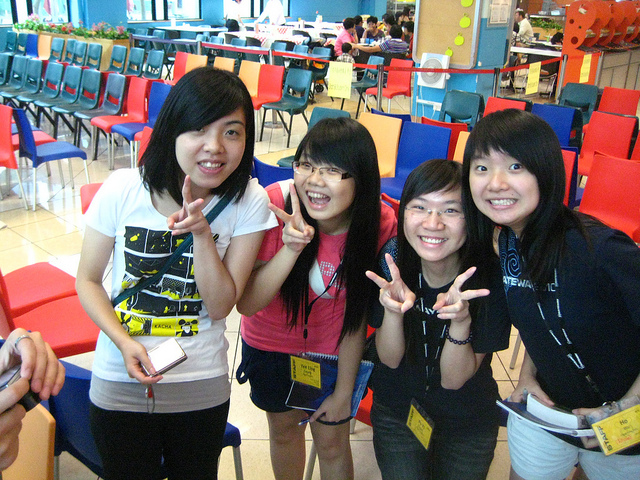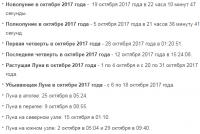Learn to speak Korean. Learn Korean: practical advice
Korean (한국어, 조선말, Hangugeo, Chosŏnmal) is the official language of the Republic of Korea, the DPRK and the Korean Autonomous Region of Yanban in China. In addition, the predominant majority of the Korean diaspora from Uzbekistan to Japan and Canada communicate in this language. It is a stunning, but not easy, language with a rich history and culture. Do you plan to travel to a country where they speak Korean, want to restore the legacy of their ancestors, or just want to learn a new foreign language, follow these simple steps and soon you will be fluent in Korean!
Steps
Training
- Watch movies and listen to music in Korean. Just by listening, in time you will begin to notice that you understand what is being said.
- This may sound strange, but try to think in Korean. When you think about a certain subject that you know, try thinking about it in Korean, without translation.
- Say the words correctly. If you are not sure of the pronunciation, look for the pronunciation of a word on the Internet.
- The best way to learn a language is to study it often enough and invest in learning it emotionally. With frequent learning, you can learn about 500 words, which will be enough for a general understanding of simple things. However, in order to better understand one or another topic in Korean, a more detailed study of the language is necessary.
- If you have a Korean friend, chat with him!
- If you are given the opportunity to make friends with a Korean, do not hesitate. Yes, some Koreans may be shy, however, most of them are open and friendly. So you can exchange language experiences and learn about the culture of the Korean people. However, you can meet someone who will be more interested in learning Russian, and not in learning Korean. Discuss this point in advance.
- Practice. Every day, do a little exercise.
- Watch Korean TV shows and movies with Russian subtitles. Also watch music videos with subtitles.
- Install the phrase book application on your phone. In such phrasebooks there are basic words and phrases, as well as a Korean dictionary.
- From time to time repeat the material covered so as not to forget it.
- Make sure you spell the words correctly. If you are not sure of your pronunciation, download exercises for training.
Warnings
- Korean can be difficult to learn for Russian-speaking people, since it is completely different from Indo-European languages, such as Spanish, English, German or Greek. Do not give up, imagine that Korean is a huge puzzle, enjoy collecting it!
AUGUST, 2016
If you decide to start learning Korean, you immediately need to mentally tune up to the fact that everything that at first seems simple, then surely will prove to be difficult in the East.
Pronunciation
For beginners, the main focus should be on understanding that sounds that seem familiar are actually different.
For many beginners to learn Korean, this is a real shock: several variants of “o”, “e”, completely differently pronounced consonants, which can also be doubled and aspirated, for which the study of European languages in school did not prepare us. And it’s better to tune in at once to these difficulties, and not to hope that you will first learn letters, words, grammar, and then you will closely occupy yourself with pronunciation.
 The fact is that if a word is pronounced with an error, or the sentence is not used the same grammatical turn, but the pronunciation and intonation itself are correct, then the Korean will understand you, but if on the contrary, then not.
The fact is that if a word is pronounced with an error, or the sentence is not used the same grammatical turn, but the pronunciation and intonation itself are correct, then the Korean will understand you, but if on the contrary, then not.
Practice pronunciation should be with the Korean sonnenimoy. Not because the Russian teacher will not be able to correctly explain, but because if a Korean took over your phonetics, then any phonetic mistake you made hurts him, and he will focus on your problem sounds.
Therefore, I actively encourage you to listen to Korean speech as much as possible and to practice pronunciation as often as possible from the very beginning of your studies.
For this, audio materials are suitable for textbooks, podcasts (especially TTMIK) and live communication. The dramas are also good, but only if you do not put your eyes on the subtitles and relax, but try to fix everything you hear in writing and repeat aloud for the actors.
Textbooks
Studying Korean in other aspects is not much different from learning any other language. It takes a lot to read, preferably out loud, for fluency; write essays to work through, slowly accumulate reserves of grammar and vocabulary. For these purposes, the following tutorials will do:
- Textbooks of the Won Gwan School (3 books by level, with a disc) are the textbook that the Won Gwan School deals with;
- I.L. Kasatkina, Jong Ying Sun, V.E. Pentyuhova "Textbook of the Korean Language" - a textbook with which to begin studying Korean at MSU;
- N.V. Ivaschenko "Practical Course of the Korean Language" (2 books) - the main textbook at MGIMO;
Textbooks NIIED (3 books on levels, with a disk) - these textbooks are used in various courses, for example, in a school at the Korean Church; - V.V. Verkholyak, L.V. Galkina, V.N. Kozhemyako "Textbook of the Korean Language" (2 books) - textbooks of the publishing house FENU, desk books of the Far Eastern Korean scholars;
- Korean Grammar in Use (3 textbooks with a disc by levels - Beginner, Intermediate, Advanced) - the best textbooks on Korean grammar that have ever been written;
- For TOPIKI I recommend ordering textbooks from Korea, in Russian there are no manuals for which you could prepare for the exam. Do not be stingy to order for yourself textbooks with delivery from other countries: the Amazon is always full of books on foreign languages, which are much more useful than those that can be found in Russian books. The only obstacle here can be English, in which most of the textbooks are written.
- But in Russian you can read a lot of things about the country itself - read on the Internet everything that you find at Andrei Lankov, Oleg Kiryanov, Konstantin Asmolov.
Korean language: "Eagle or tails?" (Information for reflecting on entering a university)
Let's look at two options for learning Korean: Eagle - you decided to connect your professional activities with Korean; tails - Korean = your hobby.
- Eagle!
If you are a graduate of a school or a student and are looking for a profession of your liking and a lifelong business, then you can consider entering (or transferring) to the Korean language department at the university.
If you are not sure of the depth of your interest in Korean culture and your willingness to devote the next four to five years to learning the language, then as a demo of the Korean Studies Department, go to language courses, find a tutor or read textbooks yourself.
Now many are coming to the departments of Oriental languages, because they believe that working with the countries of the East is promising and profitable. But such motivation often stops working as soon as it comes to classes at the university and the need to do homework for a long time every evening. If you dreamed in the university years to relax and relax a bit, to lead a life more intense in terms of social activity, then you are definitely not in the department of oriental languages. Do not make important decisions hastily, try to teach Korean at least a couple of months in any way you can to understand how truly you are ready to connect your life with Korean.
If you like the trial version of your future specialty, get ready for the exam in Russian, English and history. We'll have to try hard, because the passing score on the departments of Oriental languages is very high. And in some places, one will have to pass the internal examination of the university: in the ISAA MSU - history, and in the MGLU - English.
Moscow vs Vladivostok
I’m forced to warn you that not always universities with big names will give you the necessary knowledge and prepare you for future studies or work in the country of the language being studied. As a result, I was brought to the Far East by a Muscovite, oriental department: I transferred to the Far Eastern Federal University (FEFU) and have not regretted it yet. In Moscow, we had a very academic Korean studies: we were taught that after high school we would never have to work with the language, but we would read monographs, participate in scientific conferences and write articles. In Moscow until the very end, you feel your specialty as something exotic, especially when you communicate with people outside your circle of interests. And while you study, you have little idea what to do with your knowledge further.
In Vladivostok the study of oriental language is not a question, but a necessity. In any office where a translator is required, even if with an English language, a second one is surely requested for it - the language of the APR country. Studying Chinese, Korean, Japanese or Vietnamese here is no more unusual than learning English. Surprise a local rather cause, if you want to learn French, German or Spanish here. It is completely unpromising for life in the region.
Here, dream vacation is a trip to Europe, and a trip to Japan, China, Korea or Thailand is a common thing. It must be admitted that in such an atmosphere, the oriental language is much more pleasant to learn, and studies are more productive. Therefore, if you do not live near the central district of Russia, then it makes sense to exalt the skis not to the west, but to the east of the country.
Study in korea
Many of those who have had experience in studying the language in Korea, no longer want to study in Russian universities. In the country of the language being studied, this same language learns faster and more efficiently. If you have a budget to teach Korean in Korea for at least a month, do it. It is good if at this stage you already have basic knowledge.

Language courses in Korea are a weak demo version of education at a Korean university and a powerful simulator of your Korean. If you like Korea so much that you would like to stay there, then it makes sense to get an education there, in order to master the language and have a diploma of a Korean university. But if you doubt that you want to live in Korea, and assume that you can stay to live and work in Russia, then choose a Russian university, if only because of a diploma. If you return to your homeland and bring a Korean university diploma for an interview, not every employer will inspire it. As long as a diploma of a Russian university still means something in Russia, if you plan to live and work here, get the first education here. It is possible to have time to go abroad to study and later - at the stages of graduate or postgraduate studies, but a bachelor’s degree from Russia will allow you to find a job at home.
Do not forget about the grant system!
Korean universities are happy to accept foreign students, and in order to attract more young people from all over the world, they allocate grants for various study programs. Do not be lazy to constantly learn about the conditions for their receipt, even if you are not going to Korea right now.
If you study in Russia in the first year, but really want to go to Korea for an exchange of six months or a year or to the magistracy, then it makes sense to know in advance what is needed for this, and based on these requirements, plan your studies in Russia, receive appropriate assessments , recommendations from teachers or take the necessary international language exams.
Watch and programs in English, for admission to which may be needed only a certain point for IELTS, and the presence of TOPIKa and Korean skills will not be decisive.
Speaking of English. Do not neglect them and do not throw him.
Even if you have given your heart and life to Korean, you will need to pretty much try to subsequently find a job where fluency in English at least at the intermediate level will not be on the list of requirements for a candidate. Koreans themselves suffer from this, for whom any European language is given with great difficulty, they spend a lot of time and money on all sorts of courses and internships in English-speaking countries to become as competitive as possible in the labor market. Do not detract from the role of English in the modern world and do not greatly expect that you will work all your life only with the Russian-Korean language pair. We have a tangible linguistic advantage over many - English is easier for us, and we need to use it.
- Tackle!
If the Korean language in your life, you have defined the status of a hobby, then everything is much easier. Choose your own pace, determine the direction, set goals, find a team of like-minded people (this may be extremely important) and go!
I strongly recommend joining any spiritual group of language courses.because at times when you will be lazy or you will be too tired to study the language during the week, the weekend group will become a motivator that will make you wake up on an alarm clock on a Saturday morning and learn the dialogue to do your homework while you are in the subway to the other end of the city, to meet with friends and the sonnim and hold a two or three hour lesson together.
Courses are not only about studying, it is about friendship and mutual support, about sitting in a Korean restaurant in the evening after work, about barbecues with the whole group at the dacha, joint viewing of doramas visiting one of you. Students who came to study in Russia on exchange come to help many such courses. There may not be another opportunity to get to know them: they usually sit in their dormitories and communicate mainly with each other.
During the time I studied in Moscow, I had two such groups at different times: in Von Gwane in 2011 and in courses at the Korean church in 2014/2015. With Von Gwan, I once started everything, and I am eternally grateful to the family of my friends who once brought me there. Now the format of Won Gwana has changed a lot, the school barely copes with a huge number of people willing to study and is forced to constantly introduce all new intermediate exams. But I think that in the older groups, where there are not so many students, there still reigns that spiritual learning atmosphere, as it did five years ago.
Courses in Moscow:
- Korean Linguistic Center K-ling (Pogadaeva Anastasia Viktorovna, my favorite Korean teacher in Moscow) teaches there
Why learn Korean, because it is not as common as Chinese or Japanese? In fact, it is very important for those who want to go to study, or work in South Korea.
How to learn Korean from scratch?
Independently learn Korean at least difficult. And the point here is not even in the phonetic component (although it is also very important) - it is difficult to understand and sort out a very large abundance of hieroglyphs. Officially, there are only 24 letters in Korean, but there are also letter combinations (about 40) and more than 3000 Chinese characters. The result is a mass of combinations that are at least alien to a European person.
To study at home you will need:
- textbook (phrasebook) on the Korean language. Now on sale there are many publications that have audio dubbing of all proposed words;
- table with alphabet, numbers, flowers. It’s unlikely that you can buy the finished one, so you have to do it yourself;
- audio recordings with basic words.
For beginners, it is very important to start learning the language from the beginning - from the alphabet. Simply memorized phrases or words without this knowledge are dead, which means they are practically useless. If you have ever learned a foreign language, then you know that you need to start from the simplest. When learning at home, after studying all (or at least the basic) hieroglyphs, you can proceed to colors and counting. It is also appropriate to learn the basic phrases:
- my name is;
- i came from;
- me ... yo
This is enough for a minimal tourist vocabulary, so as not to get lost in South Korea. But if you want more - legally working, or studying in the territory of this country, you will have to sweat a lot. The same can be said about the tour to North Korea - the language rules of these ideologically diametrical countries are exactly the same.
How can you quickly learn Korean?
Let's start with the fact that in 15 minutes or in 15 days you will fail - at best, you will be able to master several of the most popular phrases. However, this applies to any language in the world - it takes time to learn.
It is very difficult to say how much this can be done. It all depends on your individual abilities, as well as how much time you will spend on it daily. But in any case, the study of even the alphabet and some of the most "necessary" words will take at least a month. Plus - phonetics and grammar, because learning to read and write is also important. Therefore, if you want to significantly speed up the study, you just need special courses.
The advantages of this work:
- a person who at least knows how to teach and where to start will teach you. Very good if the course will be conducted by a native speaker (the one for whom the Korean native);
- group classes help to focus better;
- development of colloquial speech;
- the ability to learn from the mistakes of others, as well as find their own.
DIV_ADBLOCK263 "\u003e
Which language is better and easier to learn - Korean, Chinese or Japanese?
Many are interested in just a burning question - which is better, Chinese or Korean? Let's start with the fact that all three main eastern languages are good in their own way. But what is easier to learn is a very rhetorical question. It all depends on what you want to get in the end. If you plan to work or study in these countries, then it is most logical to choose the language of the land where you are going. If you just want to touch oriental studies - the question is completely different. These languages, like everyone else in their groups, have much in common, but the differences among them are more than enough. Traditionally, the easiest oriental language is considered to be Japanese. But this is a purely subjective opinion - for someone, and the Chinese looks rustic. Korean is a more unique language, because in addition to hieroglyphic writing there are sounds and letters, which also need to be able to connect.
DIV_ADBLOCK264 "\u003e
What can help when learning Korean?
Many believe that a simple textbook is enough to learn any language. Yes, indeed, with it you can learn all the rules of reading, grammar and other subtleties of learning, but it is much better if you add various additional materials to it.
It can be bilingual books - this is when one story is told in several languages at once. Also pay attention to the application for learning the language in a game form. They usually complement the textbooks and the program presented in it. It can be various games aimed at the development of visual memory and, as a result, at memorizing more hieroglyphs and words, colors, objects, numbers.
Various audio programs aimed at the development of auditory memory and sound capture by ear are also very helpful.
Not superfluous will be watching various movies with subtitles. So you will automatically mark the most popular words, as well as how they sound right. But remember - to get the full amount of knowledge you still will not work.
If you need a sufficiently deep study of the subject, then distance learning is what you need. This format of study gives many universities that specialize in Oriental studies. Usually, institutes give sufficiently deep knowledge, which is enough for entering a foreign educational institution. But it is worth noting that such lessons are quite expensive, which means that they can be used only by those who are firmly aimed at going abroad.
If you have already laid the conversational and reading basis of the Korean language, then the question of where to start is not so acute - it is enough to develop and increase the previously acquired knowledge. Is such a difficult path? Of course, yes, because the subject is complex at any stage of the study.
To learn Korean or not is everyone’s personal choice, but if you are aiming for a result, then it’s not enough to just buy a self-help manual. It is necessary daily and constantly work!






